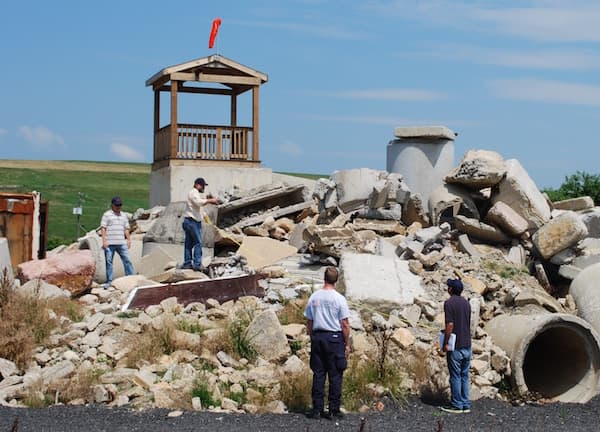NASA's Heartbeat Detection Technology, 'FINDER' Saves Lives In Nepal
NASA's heartbeat detection technology has helped save several lives after the recent earthquake in Nepal. The technology developed by the department of homeland security is aptly called FINDER - an acronym for 'Finding Individuals for Disaster and Emergency Response'. The technology was developed to detect human heartbeat buried under debris about 30 ft. (~9m) thick or solid concrete about 20 ft thick. It can even detect human heartbeat about 100 feet long in open space.
After the quake that rocked Nepal on April 25th, the DHS deployed two FINDER devices to support the search and rescue personnel where it helped detect people alive, but buried under the crushed buildings. During the trial periods of the FINDER device, about 65 various test searches were performed.
The FINDER uses RADAR technology to bounce off the signals. However, isolating a weak signal of a heartbeat is a challenging task. The problem was solved using JPL's experience in advanced RADAR technology. JPL's advanced data processing systems allow detection of faint signals even within noise. The microwave radar is capable of identifying the heartbeat pattern of humans versus other animals.The device can quickly inform whether there is any living human / victim below the debris so that rescue operations can be performed.

Image Credit: DHS/John Price
In the recent times, the FINDER device was redesigned to include a new user interface as well as upgraded battery life of about 14 hours. Read more about the FINDER technology on the source link below.
Source: #-Link-Snipped-# | <a href="https://www.nasa.gov/centers/jpl/news/finder20130917.html" target="_blank" rel="noopener noreferrer">New Technology can Detect Heartbeats in Rubble | NASA</a>
After the quake that rocked Nepal on April 25th, the DHS deployed two FINDER devices to support the search and rescue personnel where it helped detect people alive, but buried under the crushed buildings. During the trial periods of the FINDER device, about 65 various test searches were performed.
The FINDER uses RADAR technology to bounce off the signals. However, isolating a weak signal of a heartbeat is a challenging task. The problem was solved using JPL's experience in advanced RADAR technology. JPL's advanced data processing systems allow detection of faint signals even within noise. The microwave radar is capable of identifying the heartbeat pattern of humans versus other animals.The device can quickly inform whether there is any living human / victim below the debris so that rescue operations can be performed.

Image Credit: DHS/John Price
In the recent times, the FINDER device was redesigned to include a new user interface as well as upgraded battery life of about 14 hours. Read more about the FINDER technology on the source link below.
Source: #-Link-Snipped-# | <a href="https://www.nasa.gov/centers/jpl/news/finder20130917.html" target="_blank" rel="noopener noreferrer">New Technology can Detect Heartbeats in Rubble | NASA</a>
0

